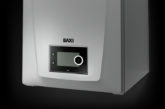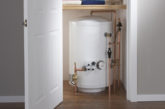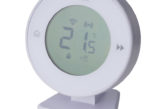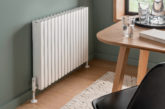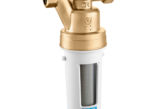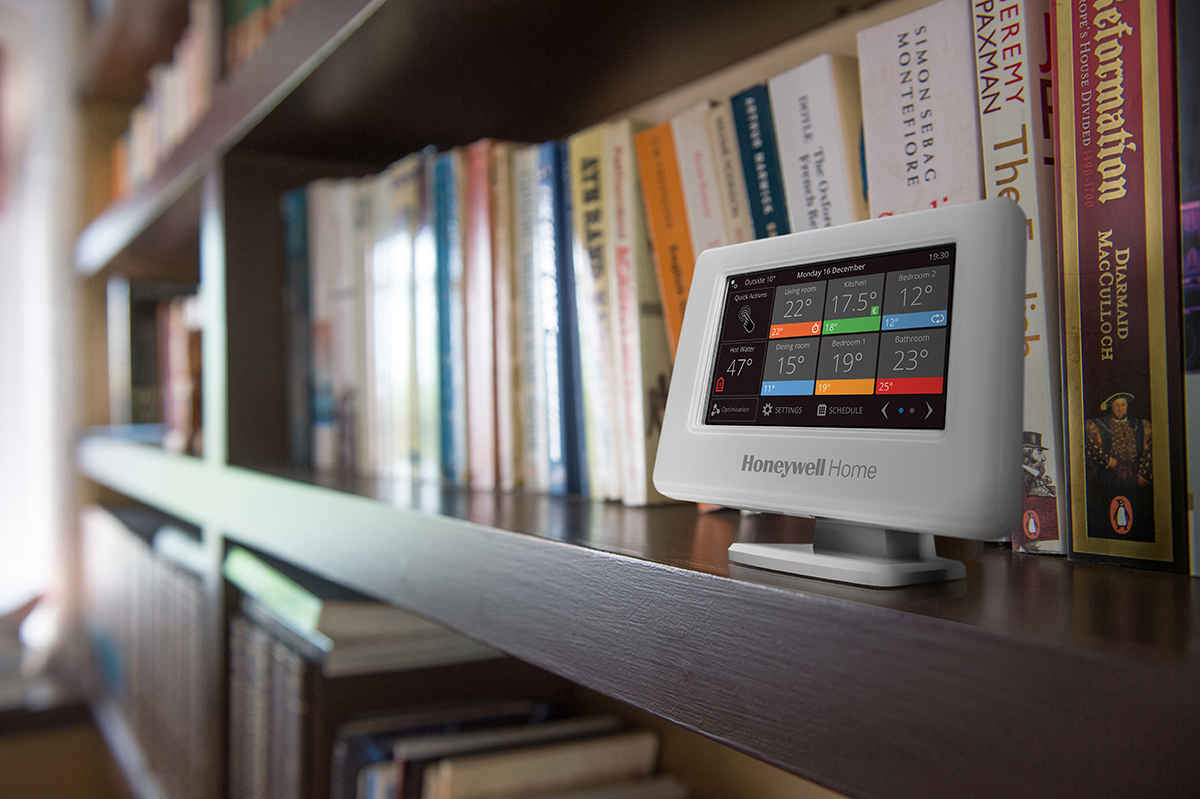
How to save energy on home heating is high on many customers’ agendas, especially as we move headlong into the colder months. In a recent survey by Resideo, a fifth of those questioned said they would reach out to a heating professional for recommendations and advice on where savings can be made. As customer budgets will vary, Martin Wilson, Sales Director at Resideo, looks at some of the options that can be suggested and the possible savings in both the short and longer term.
The survey, which questioned 1,000 homeowners on their views and worries about energy efficiency, saw 89% admit they were ‘concerned’ or ‘very concerned’ about rising energy costs.¹ However, just under half (43%) said they would be keen to invest in the latest heating controls if it meant they could save money in the long term. This figure increased to 70% amongst 25 – 34-year-olds.
It is inevitable that some homeowners will be in the position where they need to replace an aged boiler that can’t be repaired. Others may just be keen to know where they can upgrade parts of an existing system to get the most efficiency. In both cases, getting the best return for their investment will be key.
Quick checks
A double check that an existing control is set correctly, and that the customer knows how to set it to best effect can be a simple, quick check. Indeed, a common misconception still seems to be that turning the thermostat up will make the home warmer more quickly. This is more likely to be make the boiler work that bit harder to reach a higher temperature, inadvertently burning through more fuel rather than helping the room to warm up more quickly. It may be an adage but turning the thermostat down one degree can actually help save around 10% too².
Efficiency returns
As installers know, an effective system is only as good as the sum of its parts and adding elements such as thermostats or upgraded radiator valves can have a tangible impact on efficiency. In fact, it is still expected that millions of properties across the UK have inadequate controls for their heating system. The result being that the boiler is either on or off, continuing to pump out heat long after the room reaches the right temperature.
Where people can or need to change their boiler, their controls or even the radiator valves, it is possible to recommend a range of options to suit differing budgets and address the issues that could be affecting how the system runs.
To equip installers with handy stats that can help customers understand the difference various options can, Resideo has worked with BEAMA to typify how switching controls can help, based on an older mechanical thermostat being in place³.
Switching to digital
Where a property has an older mechanical thermostat in place, replacing it with a newer, digital version can make a significant difference to a customers’ energy bills. For example, based on current energy prices, simply swapping an old mechanical thermostat for a digital, load compensating thermostat can save up to £181 per year.2 Go further, and upgrade a mechanical thermostat to an OpenTherm (load compensating) thermostat, such as the Honeywell Home T6R or T4M, could see these savings increase to up to £218 a year.³
TRV upgrades
I’m sure many homeowners aren’t fully aware of the impact radiator valves can have on how effective a heating system is too. Swapping manual radiator valves for thermostatic radiator valves (TRVs) ensures that each room is maintained at a comfortable temperature and can be adapted to suit usage, helping avoid energy wasted by overheating rooms that are not used frequently, for instance. This switch could save your customer £327 a year³, so is one not to be overlooked.
A full review
There also may be customers who will want to take the plunge and completely upgrade their heating controls. Replacing manual radiator valves and a mechanical thermostat with electronic TRVs and a modulating, OpenTherm zoning thermostat solution, such as the Honeywell Home evohome, customers could be looking at savings of over £585 a year.³
Indeed, an advanced thermostat that can navigate temperature fluctuations; monitoring outside weather temperatures and communicating with the heating system to adjust the temperature within the property, ensures that energy is being used most efficiently by turning on up the system only when heat is required. For example, the smart weather feature on the Honeywell Home evohome system offers improved zone comfort control and energy consumption, based on outside temperature, room temperature and a unique feature that learns the heat losses in each room.
Equally, smart zoning capabilities use radiator controllers to wirelessly measure and control temperatures for up to 12 zones individually. For homes with this in place, the ability to set and or alter the temperature of a room from the control or via the app on a smart device means that rooms can be heated individually according to which are being used at the time and for what purpose. The kitchen, for instance, could be at 18 degrees where the lounge at a slightly higher 20 or 21 degrees.
Using resources
This year’s heating season feels like it will be busier than ever due to a mix of those wanting to get the most out of their existing boiler plus those considering replacing and updating what they already have.
To support installers during this busy heating season, Resideo’s Winter Heroes campaign has been designed to help provide installers with useful information and stats to when making recommendations to customers who are looking to make a change to get the very best out of their heating.
1Source: Research carried out on behalf of Resideo by OnePoll in June 2022, surveying 1,000 homeowners living in the UK.
2 Energy Saving Trust, top five tips to help reduce energy bills and carbon emissions: https://energysavingtrust.org.uk/new-research-finds-96-of-uk-homeowners-are-concerned-about-their-home-energy-efficiency-yet-one-in-five-arent-taking-simple-steps-to-improve-it/
3Source: BEAMA report 2022, https://www.beama.org.uk/resourceLibrary/estimated-fuel-bill-savings-from-heating-control-upgrades.html
Individual energy savings are dependent upon existing controls, environment, and lifestyle.



